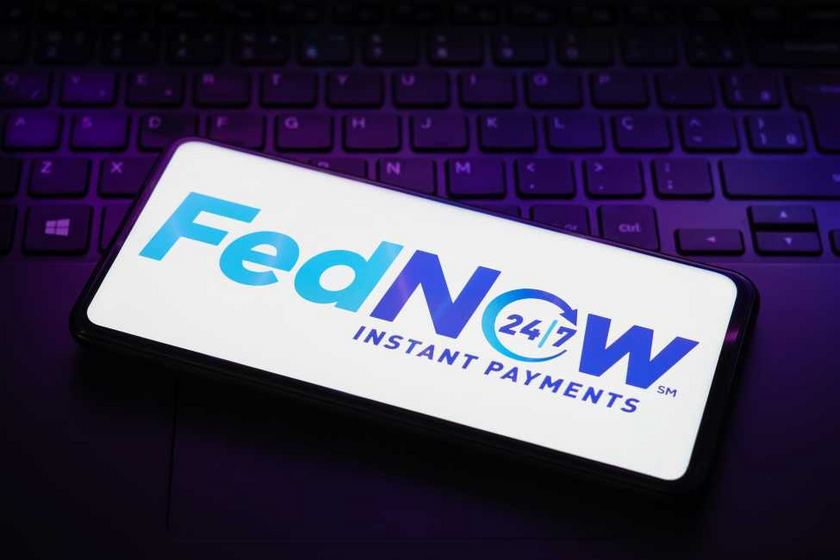Announced on July 20, the Federal Reserve’s (the Fed’s) FedNow Service is a new instant-payment infrastructure allowing eligible US depository institutions of all sizes to provide instant-payment services to individuals and businesses. Although signing up is optional, the service is available to more than 10,000 US financial institutions operating within the Fed’s network, complete with a clearing service for financial institutions to provide immediate, real-time, end-to-end payments continuously between bank accounts.
FedNow is far from being the first American real-time payment system, with the likes of the Clearing House Payment Company’s Real-Time Payments (RTP) platform (used by federally insured US depository institutions) and Zelle (used within the RTP network) proving hugely popular, in addition to private-sector offerings, such as Venmo and Cash App, that enable instant money transfers between mobile-application accounts. But those services mostly do not enable instant bank-account-to-bank-account transfers, unlike FedNow. Many regard the Fed’s new offering as an essential upgrade to its existing Fedwire Funds Service, a real-time gross settlement (RTGS) system that enables participants to initiate fund transfers. Unlike the latter, the FedNow instant-payment service allows participants to send and receive money in their bank accounts via checks, deposits and mobile payments 24 hours a day, 7 days a week and 365 days a year (including holidays).
With demands for speed and convenience in monetary transactions growing astronomically, FedNow may seem long overdue, considering that similar infrastructures have been thriving in many other parts of the world in recent years. Despite being less than three years old, for instance, Brazil’s Pix processes around $260 billion of instant payments every month, one-third of which are retail point-of-sale (POS) transactions. It has been used by nearly 150 million Brazilians—approximately 70 percent of the total population—and is offered by a whopping 800 banks and fintech (financial technology) firms nationwide. The United Kingdom’s Faster Payments System (FPS), meanwhile, processed 379.4 million payments in June—18 percent more than 12 months previously; the payments amounted to £315 billion for the month—20 percent more than a year earlier.
“Through financial institutions participating in the FedNow Service, businesses and individuals can send and receive instant payments in real time, around the clock, every day of the year,” the platform’s official website states. “Financial institutions and their service providers can use the service to provide innovative instant payment services to customers, and recipients will have full access to funds immediately, allowing for greater financial flexibility when making time-sensitive payments.”
Participating banks and credit unions are expected to integrate the FedNow service into their mobile-banking apps and websites, making it easy and secure for their customers to send instant payments.
The Fed has also been quick to quell the notion that FedNow represents a stepping stone towards a digital currency, an eventual replacement for physical cash, despite speculation regarding such a scenario widely circulating. “The FedNow Service is not related to a digital currency,” the Fed states on its website. “The FedNow Service is a payment service the Federal Reserve is making available for banks and credit unions to transfer funds for their customers. It is like other Federal Reserve payment services, such as Fedwire and FedACH. The FedNow Service is neither a form of currency nor a step toward eliminating any form of payment, including cash.”
Among the biggest likely beneficiaries of FedNow will be small American businesses that often lack access to traditional banks’ funding. The cash-flow challenges that result from these limits can be hugely threatening to such businesses’ survivals, and access to instant payments can significantly shorten the time to realise cash flows into their bank accounts. With many businesses relying on tailored inventory-management systems, such as just-in-time (JIT) (whereby goods are sourced from suppliers only as and when they are needed), it is hoped that the instant-payment initiative can be a true godsend for many enterprises.
Indeed, with access to funds becoming increasingly important for businesses, households and consumers alike, FedNow is likely to prove a winner. Businesses need cash flows without delays, while workers need their wages and salaries to be accessible in their bank accounts on the same days they are paid. Mortgage payments can also be completed instantly, so homeowners do not have to wait days for online payments to clear or even longer if paid by check.
But as with most innovative payment systems, FedNow is not without its own set of risks; most pertinent is the likelihood of fraud being committed. With companies such as Zelle registering customer claims of fraudulent activity last year numbering well into the hundreds of thousands, many of which have been irrevocable and non-refundable, there is considerable concern that payment-related fraud will similarly surface on the FedNow platform in the same numbers. Although the new services offer clear fraud-mitigation defences, the responsibility for recourse ultimately lies with participating financial institutions. “As they prepare for the FedNow Service, participating institutions will want to evaluate their own fraud management approach and consider taking steps to help protect themselves and their customers,” is the official FedNow position.
In June, rating agency Moody’s Investors Service identified several challenges facing FedNow just before its launch, including the potential losses faced by some payment players that “rely heavily” on card interchange fees as a primary revenue source. Moody’s noted that the constant, round-the-clock availability of FedNow will probably require users to invest more in technologies and headcounts to monitor money movements closely and guard against potential cyberattacks. And with payments moving more seamlessly via FedNow, the rating agency warned there could be an increased possibility of bank runs in light of the fast withdrawals observed during the series of bank failures earlier this year.
The June 26 report from Moody’s additionally noted that while FedNow may give smaller banks extra technological resources to compete with larger rivals, it may also erode financial institutions’ revenue if consumers and businesses prefer using the new payment system over credit and debit cards, as merchants pay banks and credit unions interchange fees when cards are used. “FedNow could reduce the revenues of payment firms and banks that rely heavily on debit and credit card interchange fees,” the report stated. “Banks would also lose the interest that banks and credit unions earn on ‘float,’ the money that is in practice earned during the time a bank takes to register a deposit or withdrawal.”
Evidence suggests the service faces a lack of widespread adoption, with only 35 banks and credit unions signing up to be equipped with FedNow’s instant-payment infrastructure as early adopters, along with the U.S. Department of the Treasury’s Bureau of the Fiscal Service. A further 16 service providers are now set up to support payment processing for banks and credit unions. But this number is only a small fraction of the thousands of lenders eligible for the service.
Nonetheless, early participants remain convinced that it is only a matter of time before mass adoption transpires. “The momentum and interest we’re seeing in the FedNow Service in the weeks after launch reflects the noteworthy support from early adopters and underscores the changing U.S. payments landscape,” said Kenneth C. Montgomery, first vice president of the Federal Reserve Bank of Boston and FedNow’s program executive. “We anticipate widespread adoption, and ubiquity will build over time, bringing the benefits of instant payments to communities nationwide and improving the way households, businesses and governments send and receive payments.”












 All while Pfizer—a company with a $2.3 billion criminal fine for fraudulent marketing, bribery, and kickbacks—was given blanket immunity from liability and billions in taxpayer dollars to produce a vaccine in record time with no long-term safety data.
All while Pfizer—a company with a $2.3 billion criminal fine for fraudulent marketing, bribery, and kickbacks—was given blanket immunity from liability and billions in taxpayer dollars to produce a vaccine in record time with no long-term safety data.
























